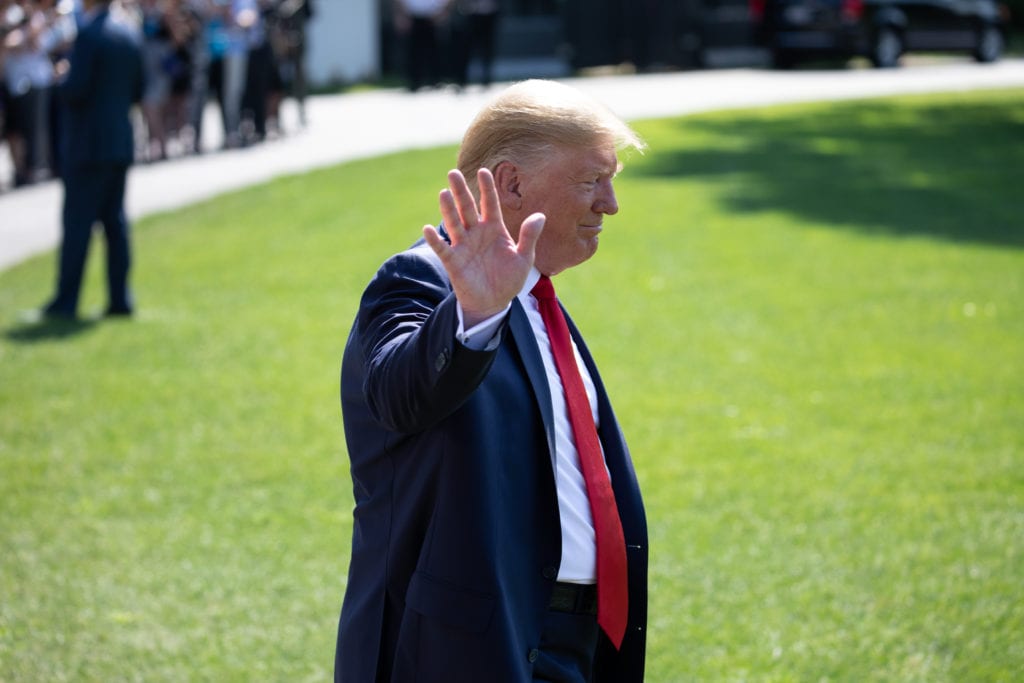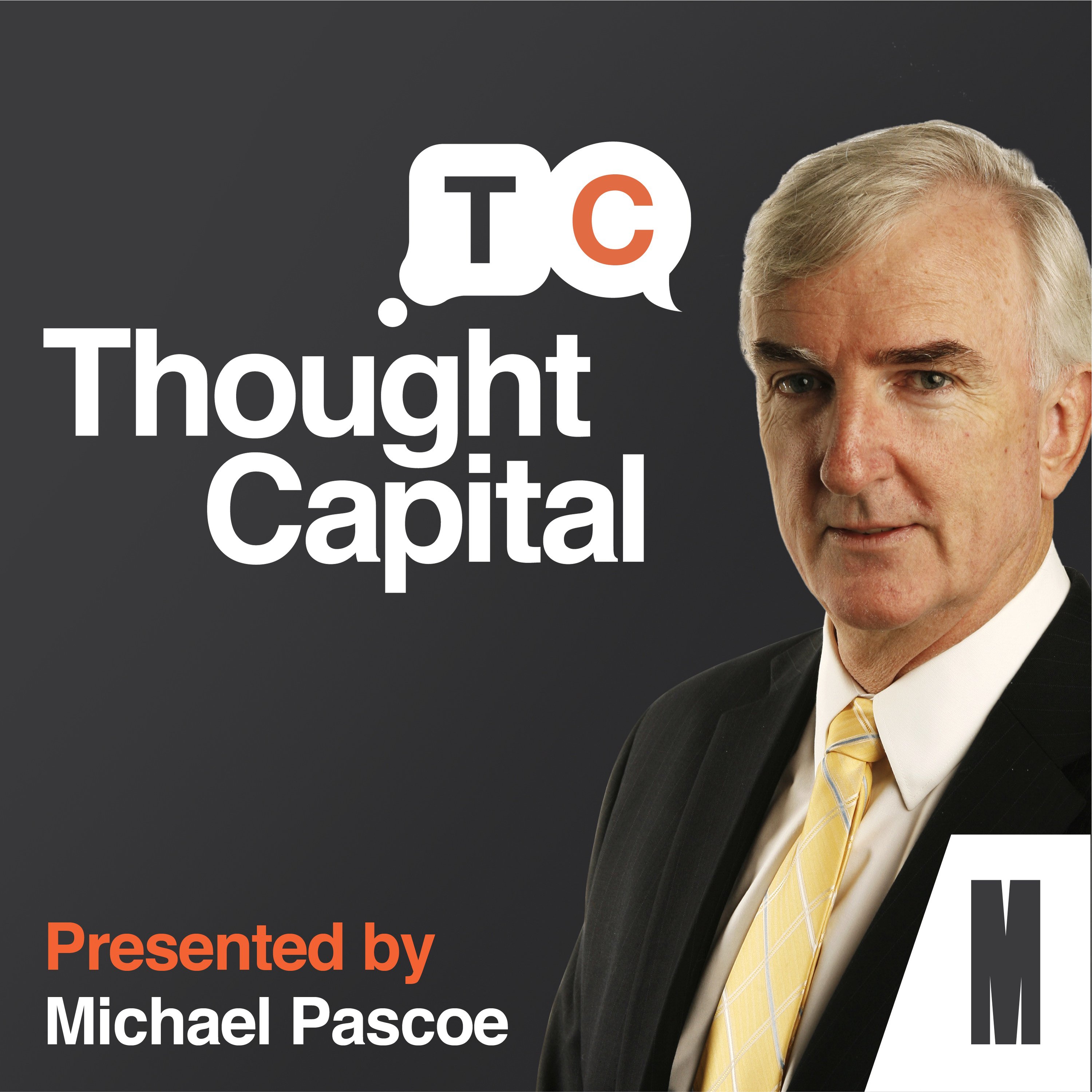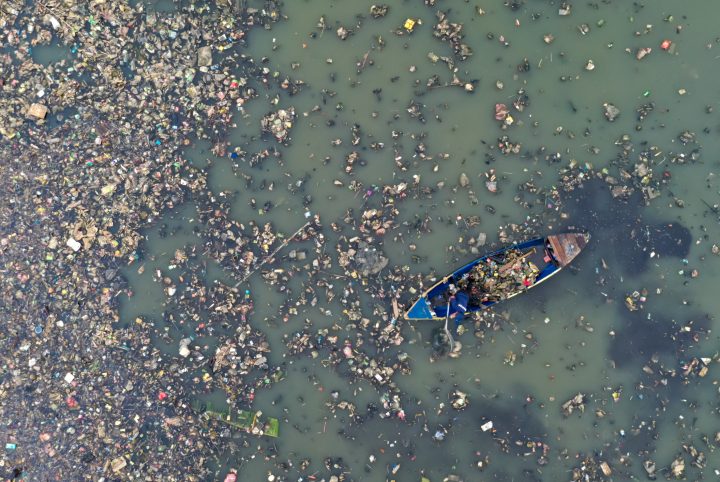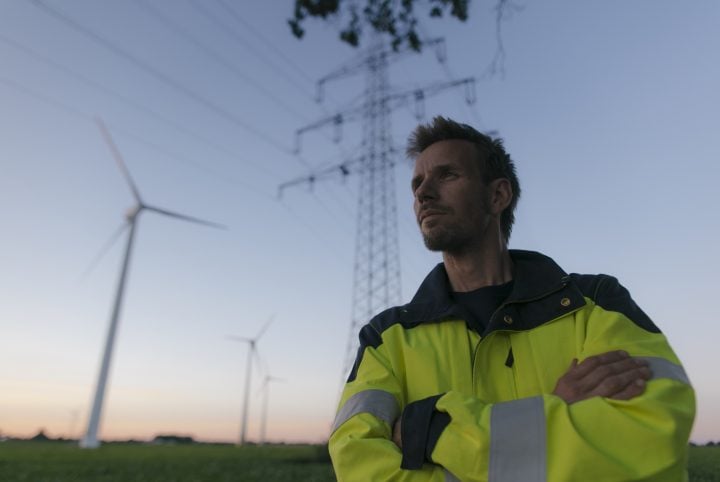Michael Pascoe: Australia’s key security partner and key trade partner are locked in an escalating trade war as the established great power tries to contain the rising great power. It is a conflict with potential to rock the global economy, let alone little Australia.
Giovanni Di Lieto: Australia, Japan, Western Europe, we’ve done so well from trading with China and riding the Chinese Tiger under the American security umbrella, so that was a very sweet deal for us.
Michael Pascoe: Dr. Giovanni DiLieto teaches International Trade Law and the Bachelor of International Business. He’s with us today to explore how the clash between the U.S. and China is shaping the international economic order and the implications for Australia.
Michael Pascoe: Giovanni, welcome to Thought Capital.
Giovanni Di Lieto: Thank you.
Michael Pascoe: We’ve become used to decades of steadily liberalizing international trade. Is that now under threat from this trade war?
Giovanni Di Lieto: We are really going through a paradigm shift in the global economy and also in the management and governance of international trade.
Michael Pascoe: Was the scene already set for tension between the U S and China on trade before Donald Trump?
Giovanni Di Lieto: Yes, it was very much so. Donald Trump is only accelerating a process that was due to come sooner than later, I’d say. There’s always been a cross party division of fields of those who are more pro-trade and those who are more protectionists. With China’s rise and the fate of China to become more Western with free trade and globalisation, of course, this has now exposed the fault lines of the globalization project.
Donald Trump: We’re having a little squabble with China because we’ve been treated very unfairly for many, many decades or actually a long time.
Giovanni Di Lieto: I think that the further escalation of the U.S.-China trade war is not inevitable. Of course it’s possible, but not likely in my opinion. Economic and also cultural reasons can push these two countries to find a way to coexist even in a heightened state of tension.
Donald Trump: The relationship I have with President Xi is extraordinary, it’s really very good, but he’s for China and I’m for the USA and it’s very simple.
Michael Pascoe: How dangerous is Donald Trump’s ego in trying to find a resolution?
Giovanni Di Lieto: It is probably for the first time in recent history is more dangerous than it would be from those of the so-called non-democratic opposes or competitors. But of course, Trump is gonna last next two or six years.
Giovanni Di Lieto: I don’t see Trump so crazy… He’s what he’s, but I don’t see him so crazy as to really pull the trigger. It’s not just Trump, let’s say it’s also Xi Jinping.
Michael Pascoe: We don’t know that much about Xi Jinping as a person. What sort of leader do you think he is?
Giovanni Di Lieto: Of course he’s very popular. He’s a strong leader, so he’s projecting this winning persona for new found pride into China, so this is probably, is a nation building man. Xi Jinping has brought the changes even more drastic than Donald Trump has done.
Michael Pascoe: For the changes that are required perhaps in China to maintain momentum, there are big changes that do need a strong central control over the fringes, and this is what we don’t know yet.
Giovanni Di Lieto: We don’t know yet because it is an existential battle between U.S. and China. What U.S. want from China is for it to deeply reform its system, become a full market economy. Of course, China will never do that because it would jeopardise the grip of the Communist Party over the Chinese system. That’s the way the Chinese system works.
Michael Pascoe: But is it more than that? Does the U.S. want more than that in that it wants China to remain in second place now?
Giovanni Di Lieto: No, I don’t believe so. The uncertainty about what the U.S. wants is really, okay, where do they want to take the multilateral trading system? Do they want to break down the WTO altogether or do they want to just limit the reach of the enforcement mechanisms of the WTO? So this is the big question that will reveal the true fault line of the U.S.-China contest today.
Michael Pascoe: What are the chances of a U.S.-China deal to hit off the escalation on trade?
Giovanni Di Lieto: I think any substantial deal cannot be seriously expected to be reached in a few months. A normal free trade agreement between two medium size countries take on average two to five years to agree on. We know it’s a state of permanent tension and we can live with that.
Michael Pascoe: So the best we could hope for is a deal that’s effectively a truce-
Giovanni Di Lieto: Probably, yeah.
Michael Pascoe: … rather than a deal that actually means-
Giovanni Di Lieto: Actually it will be bad for the rest of the world, particularly for the Asia Pacific region if the U.S. And China reached a truly grand bargain as it is being called because this will really spell the end of the old liberal economic system and it will really begin a new era of bipolar world.
Giovanni Di Lieto: It’s not a cold war because I think the difference is that there’s no true ideological competition like it used to be between communism and democracy because the economic system is interlocking. So we would have two interlocking spheres of influence between the U.S. and Chinese, so it will be pretty much the end of true multilateralism, so everybody else in the world will become price and rule takers of whatever the U.S. and Chinese decide even more so than it is today.
Giovanni Di Lieto: But at least now there are some checks and balances somehow in a balance of power, so the balance of power will be thrown off completely in this bipolar world and it will be really bad, especially for a country like Australia.
Giovanni Di Lieto: Again, we might be even further pushed away from China by the U.S. because then I think this grand bargain between U.S. and China will lead to a situation in which that the U.S. recede to a more sustainable position controlling the oceans, the Pacific and Indian oceans, and the Chinese will have a free reign over Central Asia and the rest of Asia.
Giovanni Di Lieto: And you can see how the Americans are willingly retreating from Central Asian engagement in a way inland, but they’re actually pushing harder over the seas in terms of maritime control, anti-piracy, the code also is there.
Giovanni Di Lieto: So for the Australia economy, so a grand bargain also will reduce the voice and impact that the Australian economic diplomacy would have on setting the rules for trade and the economy.
Michael Pascoe: Is trade being used as a tool of bigger potential war?
Giovanni Di Lieto: Very much so. I would confidently say that trade is being weaponized by not only Trump administration quite blatantly, but also by everybody else in the world, I think we are all adjusting. The Americans call the shots in any major policy decisions in the world.
Giovanni Di Lieto: And of course the Chinese are responding to that and actually fanning on the flames, and the Europeans are now also abiding by these situations, and the European Union are probably the only other block that can potentially really deal with the U.S. and China on nearly an equal level.
Giovanni Di Lieto: Everybody else, including Russia or India are not there, they are not there really. Russia is punching above its weight because Putin is very clever about it. India is not ready, it’s always been non-aligned, but India might be pushed.
Giovanni Di Lieto: That’s another game the U.S. are playing against China. The U.S. are dreaming about India moving over to the U.S. camp out of fear for China, and of course the U.S. are playing this game in Europe because Russia may fall into the embrace of China and then Europeans might be scared by that.
Michael Pascoe: While these geopolitical games are being played, horrendous games, what’s the real world for companies and individuals needing an economy in a trade battle?
Giovanni Di Lieto: I think it’s a bit of a paradox because short term we are seeing, especially in the Asian region, the Asia Pacific region, we are seeing that the early winners of the trade war are actually everybody else but U.S. and China.
Giovanni Di Lieto: The U.S. is certainly losing out, for example, having withdrawn from the TPP, the Trans-Pacific Partnership, and there’s early data coming out that shows that actually countries like Japan, Vietnam, actually and Malaysia and the Philippines are gaining from the so-called trade diversions.
Giovanni Di Lieto: So of course, as U.S. and Chinese companies try to differentiate the risk and try to decouple from each other, of course they need to turn to someone else, and this someone else is in Asia. Again, Vietnam tenably well, so consider the automotive industry for example, it’s a very complex supply chain.
Giovanni Di Lieto: If an American company or a European company, once a car company wants to produce in China or sell in China, they would avoid to do it through the U.S. supply chain to avoid tariffs. Where do they go? They will go to Thailand for example, and all other heavy industries, they will go to Vietnam.
Giovanni Di Lieto: And in terms of opening new markets, they will sell to Japan rather than to China. They would use South Korea as the broker of this.
Michael Pascoe: And how is Australia being positioned then? Are we potential victims should a deal or truce be arranged between China and U.S.?
Giovanni Di Lieto: Well let’s say we are in a tricky position of the rest of Asia, especially Southeast Asia because true, we are a bit further away from China, but in a way we are closer to the U.S. security-wise as an island nation, continent or nation, we need to side with the maritime power rather than the land power.
Giovanni Di Lieto: Of course, this is tricky for Australian firms, Australian companies because we export commodities, we export agri-food stuff, so rocks and crops. What is going to happen to our rocks and crops should the U.S.-China trade war escalate into a more conventional war or some proxy wars in the area, which will create new checkpoints in the maritime routes over north bound from Australia.
Giovanni Di Lieto: Of course this is going to be highly disruptive. On the other hand, wars can even clear more fluctuations in commodity prices, they may push commodity prices up, but then where are the markets going to be?
Giovanni Di Lieto: And if the U.S. are going to tell Australia, okay, you cannot trade with China anymore because they are our enemies, of course what is Australia going to do? It’s going to stop trading with China I guess-
Michael Pascoe: That’s a hard scenario to grasp-
Giovanni Di Lieto: … longterm.
Michael Pascoe: … because it would put Australia into recession, depression. I mean not just rocks and crops, our services exported now to China are more important than the crops and most of the rocks.
Giovanni Di Lieto: But having said that, not to be all doom and gloom, when there’s a higher risk, business people know very well that there’s also bigger opportunities for huge gains. And I think this is true also in the situation for Australia as an economic system.
Giovanni Di Lieto: Of course, Australia can find new ways to exploit the new supply chains. Now supply chains are… There’s already some microeconomic data that’s showing the supply chains are decoupling between the U.S. and China and also regionalizing, so they’re de-globalizing, they’re shrinking, they’re becoming shorter and less knotty.
Giovanni Di Lieto: Australia geographically is quite peripheral, and with a reduced complexity in a way we will know better where to stand. If we can still find markets that can be non-aligned, if we can maintain a certain non-alignment, we can still then offset the potential disruptions of the U.S.-China situation.
Giovanni Di Lieto: This probably explains why the Australian Government has been so active in reviving the TPP, the Trans-Pacific Partnership, with the U.S. Australia and Japan have never been this close actually as in the past few years, and we’re also now negotiating a new trade agreement with the European Union, which would be very important to find also new routes around the U.S. and China.
Giovanni Di Lieto: And we just signed a new free trade agreement with the Hong Kong, which is very important because it fills the gaps that were left with the ChAFTA, the China-Australia free trade agreement. Because lots of financial capital flows actually from China goes through Hong Kong, so I think this is very important to complete the Australian economic dynamics.
Michael Pascoe: What are the key risks for Australia in this conflict?
Giovanni Di Lieto: Australia, Japan, Western Europe, we’ve done so well from trading with China and riding the Chinese Tiger in the last 40 years under the American security umbrella, so that was a very sweet deal for us, and now this toy might be taken away.
Giovanni Di Lieto: Security-wise, we could become the theater of a proxy conflict, and I say that the hotspot would be of course Taiwan, the Taiwan Strait in the South China See and that could be tricky because of course the Americans would use Darwin and the north of Australia as a base. It will not necessarily happen, but in might happen.
Michael Pascoe: Leaving out a hot war, what’s the risk to us?
Giovanni Di Lieto: It will be a huge recession if you don’t have a plan B ready if there is a very quick escalation, so it’s also the rapidity of this escalation trade war, and if the U.S. and China shut each other out of their own trade, Australia will be left in the middle. This is the risk of huge economic disruption.
Giovanni Di Lieto: We risk to lose a whole generation of economic development and growth and possibly to really go backwards in terms of our social economic development in a generation if we don’t react because then reorganising our industrial economic system will take years.
Michael Pascoe: So are we really more dependent on China than the U.S. for all the talk of security?
Giovanni Di Lieto: In a way we tend to underestimate how much reliant we are on America also on economic and the economic side. We do trade one third of our exports go to China in commercial volumes, but also the capital flows, the financial markets, we are equally dependent on the U.S. flows, I think nearly 30% to date.
Giovanni Di Lieto: Goods-wise we’re… not dependent, I think dependent is too strong. You’re dependent when you reach 40, 50, 60% with one country, one market, but it’s our main partner is China, but in capitals-wise our main partner is the U.S., so I guess that U.S. also have something more on the plate with us than just security and the Pine gap and the Five Eyes.
Michael Pascoe: Be an optimist for me.
Giovanni Di Lieto: Okay. I’ll try hard.
Michael Pascoe: What could happen that allows us to live happily ever after? Can you see your way through the mire?
Giovanni Di Lieto: So the U.S. and China, they might actually come to a point in which they really weaken each other, and this would allow a new space for other countries and other blocks to rise, this could create a healthy balance of power. To be optimistic, we could see that over the medium long term, a century or so, power could be more diffused more spread around different blocks, and this could be positive.
Michael Pascoe: Immediately, Australia’s position, we’ve already been rapped over the knuckles a few times by China. Do you see that continuing getting worse or have we learned a lesson?
Giovanni Di Lieto: China of course has strong instruments for pushing their ways and making their voice heard, so what could China do to us other than now they are making it be harder for coal shipments to be cleared with the customs in China.
Giovanni Di Lieto: I think a fair escalation could become, for example, and that will probably endanger my job here at university will be maybe to not allow so many Chinese students to come and study here in Australia, or not so many tourists. It’s our third largest export industry, education, very easy targets-
Michael Pascoe: It’s at no cost to China.
Giovanni Di Lieto: No cost to China, actually the opposite.
Michael Pascoe: The sea routes would be a very tough escalation whereas-
Giovanni Di Lieto: Taiwan especially-
Michael Pascoe: … our two key services trade are awfully easy to do.
Giovanni Di Lieto: Imagine a conventional conflict in South China Sea or invasion to Taiwan and a response to the Americans which is far from certain anyway. Of course that in our trade to Japan, North Asia will be compromised, so where do you go? Where do we go? So Australia doesn’t have another option.
Michael Pascoe: Who Do you think is going to win this trade?
Giovanni Di Lieto: Us. Are we being optimistic? So everybody else. Neither U.S. or China, I think everybody else. Neither U.S. or China will win, and again, they will weaken each other. I think this is my medium term prediction or hope or both.
Giovanni Di Lieto: On a short term, of course it’s tricky, and some countries will be hurt because there will be more proxy wars, but if we manage to… Our feet dry from this, I think that we can do well. We can do well over the medium term, but we need to be less complacent to be more open to change our minds and our ways.
Michael Pascoe: Giovanni Di Lieto, thanks for talking to us.
Michael Pascoe: You’ve been listening to Thought Capital from Monash Business School. You can find more episodes on iTunes, Spotify, and Stitcher or wherever you listen to podcasts.
Michael Pascoe: This episode was produced by Tina Zenou, editor is Nadia Hume, sound production by Gareth Popplestone, executive producer is Helen Westerman.




